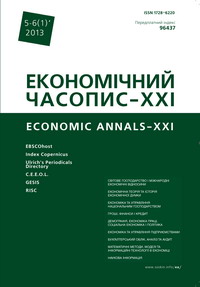ПРОБЛЕМЫ МОДЕРНИЗАЦИИ СТРАН СНГ В ОЦЕНКЕ МЕЖДУНАРОДНЫХ ОРГАНИЗАЦИЙ
THE PROBLEMS OF THE CIS COUNTRIES MODERNIZATION IN THE EVALUATION OF THE INTERNATIONAL ORGANIZATIONS
Author(s): Viktor BudkinSubject(s): Economy
Published by: Institute of Society Transformation
Keywords: Commonwealth of the Independent States; modernization; global competiveness; freedom of economic work
Summary/Abstract: In the article the modern state of the Commonwealth of the Independent States (CIS) national economies is regarded in the context of their possible modernization. The necessity to discern three levels of such modernization is substantiated. They are: technical-technological modernization (is limited strictly to a technological process of dated machines, technologies and raw materials replacement with modern ones); economic modernization (is complemented by improvement of management and the process of entrepreneurial activity as a whole); and social modernization (is oriented on the perfection of a system of public relations in general, including civil society building, total democratization of all relations between the citizens and the state, effective juridical basis creation for human rights preserving etc.) Also, it is important to differentiate so-called «pointed» modernization of a single enterprise or another economic entity and «branch» modernization of a whole sector of national economics. Presupposition for an ability to conduct modernization is a level of economic development of CIS member countries (GDI per capital), given in the reports of the World Bank. According to this indicator, the CIS countries are divided into three groups – those which don’t have an ability to start modernization; those which have limited capacity of «pointed» and «branch» modernization, and those which are potentially able to conduct wide-scale modernization. Nevertheless, even for the most developed CIS countries (and first of all Russia) it is problematic to conduct the modernization in current conditions. A range of negative factors restrain the modernization, namely: law level of the economic freedom (an estimation of the Heritage Foundation), high level of corruption, law competitiveness etc. The main reason of the situation is a shortcoming of economic mechanism in the CIS countries which market-oriented reformation had imitational nature. The author emphasizes that it is impossible to overcome such imitation with only economic instruments. In order to create an effective model of the CIS national economies administration the non-economic methods should also be used in the framework of «social modernization», including wide democratization of public relations
Journal: Економічний часопис - ХХІ
- Issue Year: 129/2013
- Issue No: 05-06 (1)
- Page Range: 3-6
- Page Count: 4
- Language: Russian

